This article was contributed in support of United Nations Development Programme and originally published here.
It has been 34 years since their husbands were murdered.
The widows were stripped of their belongings and subjected to sexual and psychological abuse and forced domestic servitude during the internal armed conflict in Guatemala that ran from 1960 to 1996.
They faced the triple stigma of being female, poor and indigenous.
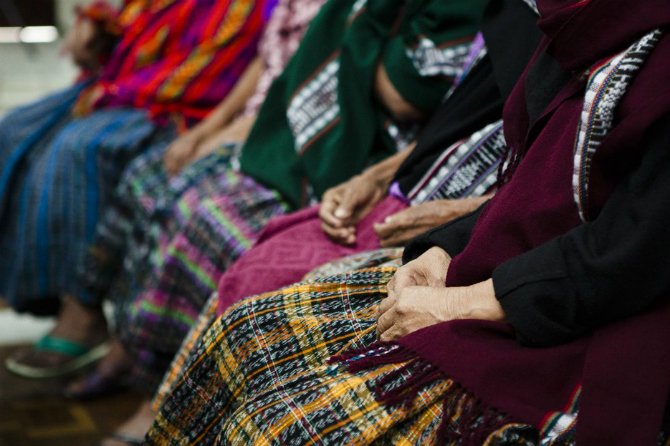
But 15 of these indigenous women from the remote Maya-Qeqchi village of Sepur Zarco in the rural east of the country have achieved a historic milestone:
For the first time, a national court has tried and convicted sexual slavery as a war crime.
It is a momentous verdict for the country — and the world.
The suffering of the women of Sepur Zarco dates back to their communities´ struggle for land rights in eastern Guatemala, where land dispossession and mining interests have prevailed. From its establishment in 1982 until 1986, the military base in Sepur Zarco operated as a “recreational centre”. Local women forced to work at the base were raped repeatedly by members of the army.
For six months, Carmen was forced to work 12-hour shifts. With tears in her eyes, she recounted her experience at the tribunal:
“Every time I went to serve them, they took me aside and threw me on a bed, where they raped me… There were countless men; they all lived there. They insisted that I had no one to protect me and that they were the authority over me.”
Other women in the community, and their daughters, did not survive the sexual violence.
UNDP supported organizations (members of the Alliance Breaking the Silence) to provide psycho-social and legal support to the women of Sepur Zarco. The women gained strength, both personally and organizationally, to fight for justice.
Across the country
According to the Historical Clarification Commission, 88.7 percent of rape victims during the internal conflict belonged to Maya indigenous groups; 62 percent were aged 18 to 60, 35 percent were young girls and three percent were elderly women.
(Read Elena’s story, a woman who testified in a previous trial.)

Since 2010, UNDP has supported the work of civil society organizations that provide key legal and psycho-social counseling to victims in criminal proceedings. Among them are feminist and human rights organizations that support women victims of sexual violence. Through its Programme to Accompany Transitional Justice (PAJUST), UNDP supports victims´ rights to truth, justice and reparations, as well as promoting measures to prevent a repetition of human rights violations in the future.
“Women were empowered…to speak out about the sexual violence they suffered and demand justice. In doing so, they have motivated other women survivors. The Sepur Zarco case has helped us to better understand the multiple dimensions—personal, social and political—of sexual violence in Guatemala.”
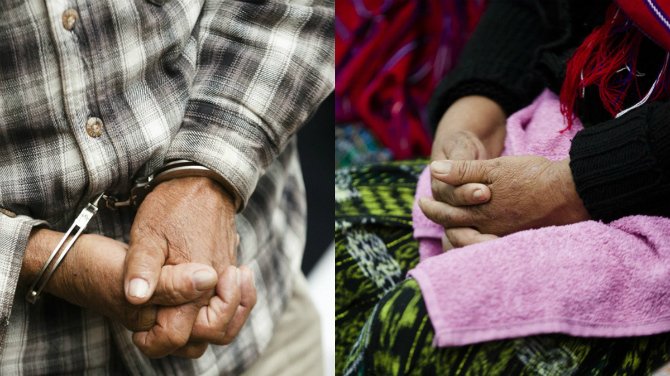
PAJUST has also strengthened the investigative and legal capacities of the Human Rights Division of the Public Prosecutor´s Office to deal with cases of sexual violence against women during the internal conflict, including manuals and trainings.* The Attorney General adopted the General Instruction for the Investigation of Sexual Violence committed during the Internal Armed Conflict in 2012.
Over the five years prior to the historic Sepur Zarco trial, UNDP supported the Alliance Breaking the Silence to implement a holistic strategy, sensitive to the women’s culture and language, that included:
· Legal support to ensure women’s participation while protecting their safety
· Psycho-social assistance to foster empowerment and help the women process their emotions
· Security to protect women from potential backlash, given the risks involved of breaking taboos
· A communications campaign to raise public awareness about the case
An historic day
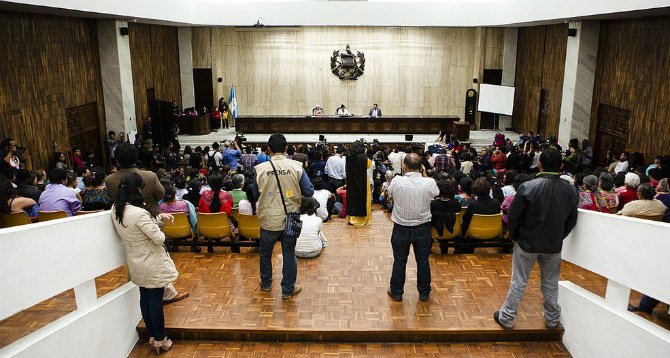
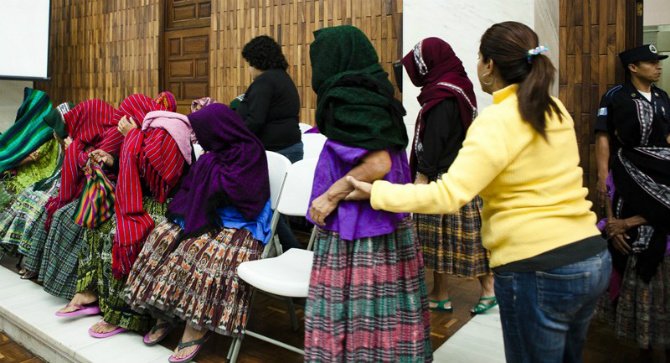
On the 25th of February, 2016, National Day for the Dignity of the Victims of the Internal Armed Conflict, two members of the military accused of the crimes, a former lieutenant colonel and a former military commissioner, received sentences totaling 360 years in prison. Reparation measures were ordered for each of the survivors.
“In the pursuit of the enemy, women became objects of war,” stated judge Jazmin Barrios, acknowledging the use of rape as a strategic weapon used throughout the 36 years of internal armed conflict.
“We fight so that history does not repeat itself and that no woman suffers what we’ve been through,” said the women, whose ages today range between 58 and 65 years old. After the verdict, with their faces covered for protection, they raised their hands in victory.
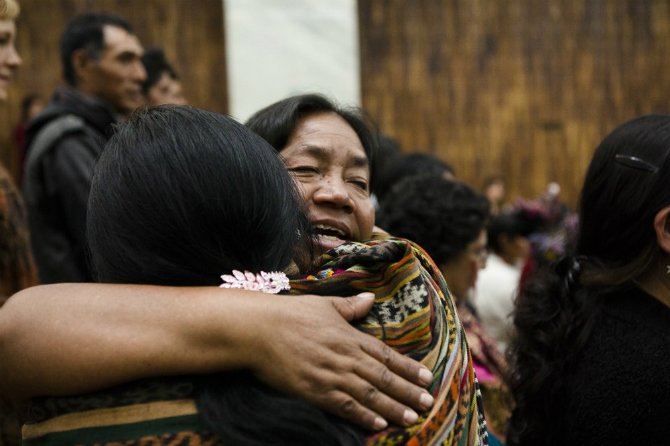
* The PAJUST initiative is financially supported by Canada, Sweden, the Netherlands, the Government of Catalunya, USAID and the UN Peace Fund.
The views expressed here are not neccessarily those of each of the partners of Global Citizen.